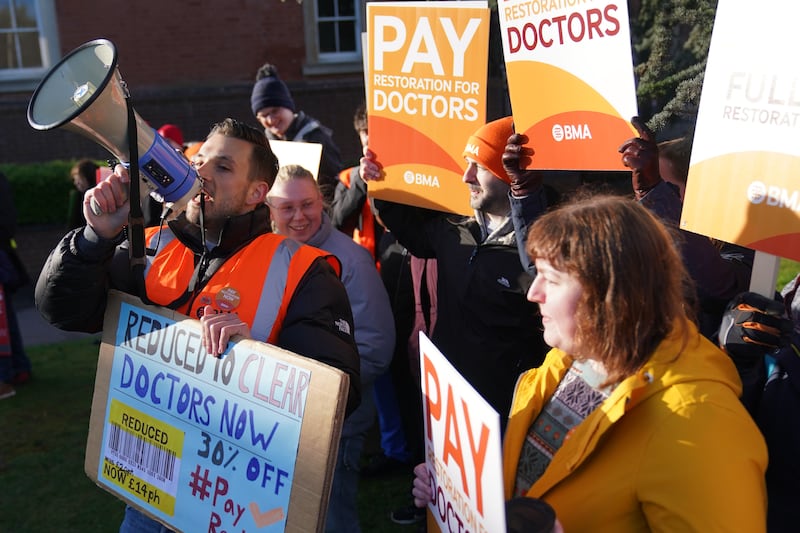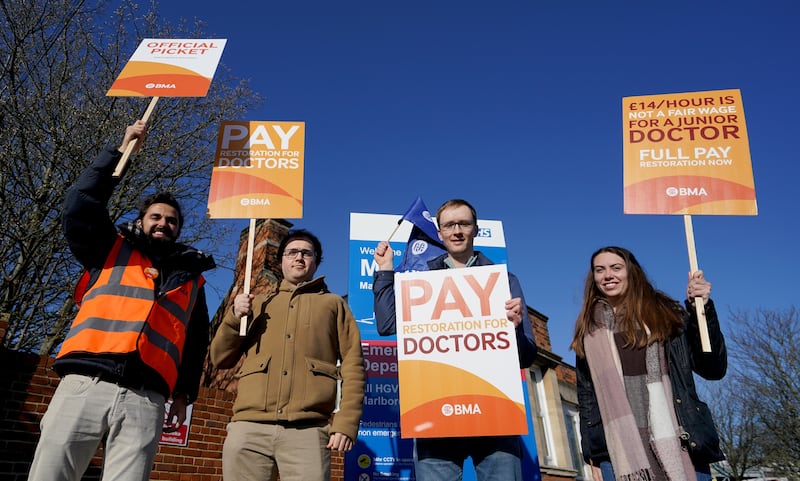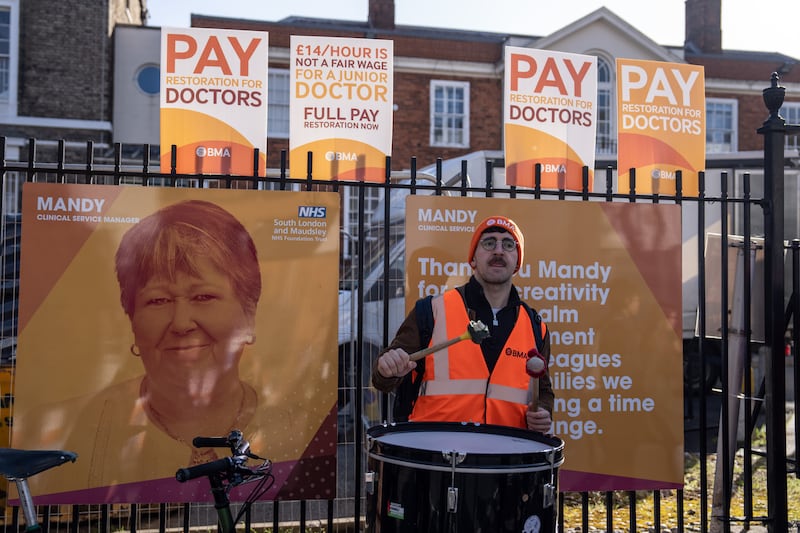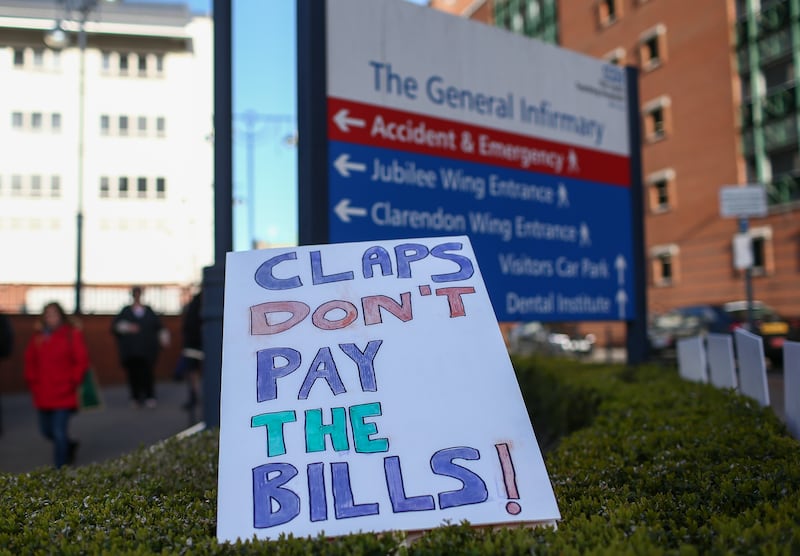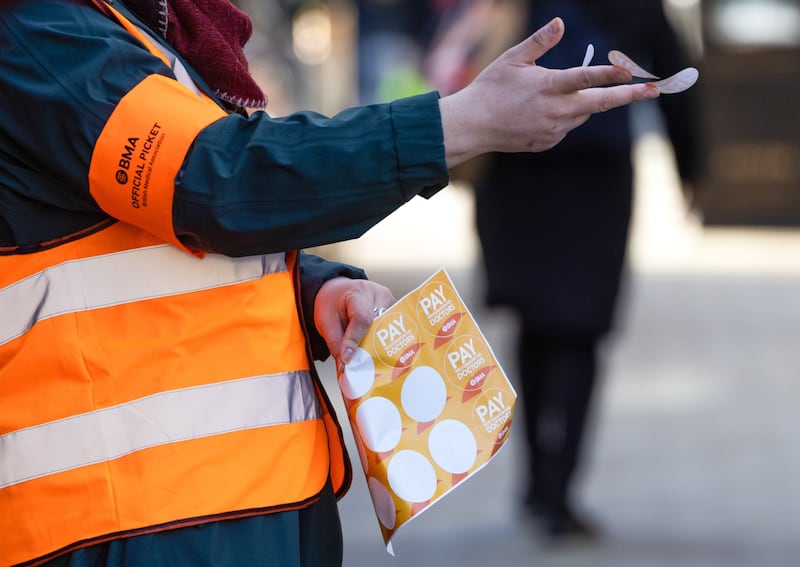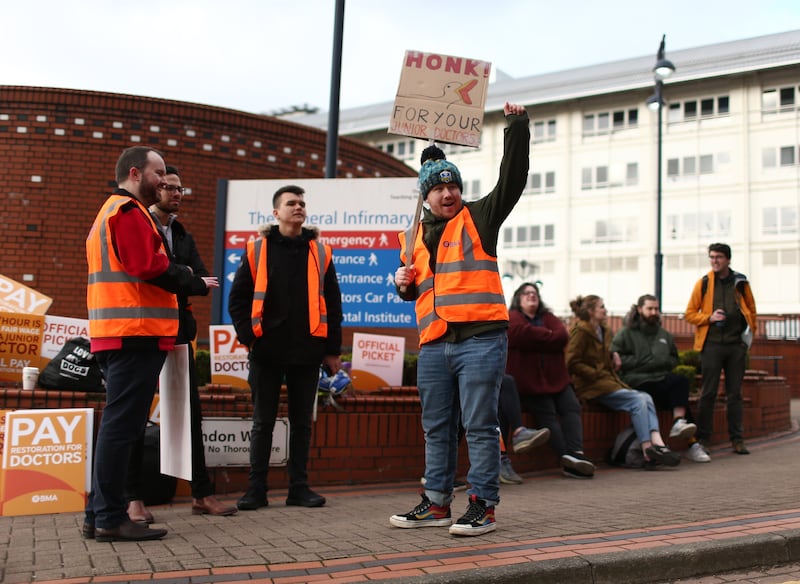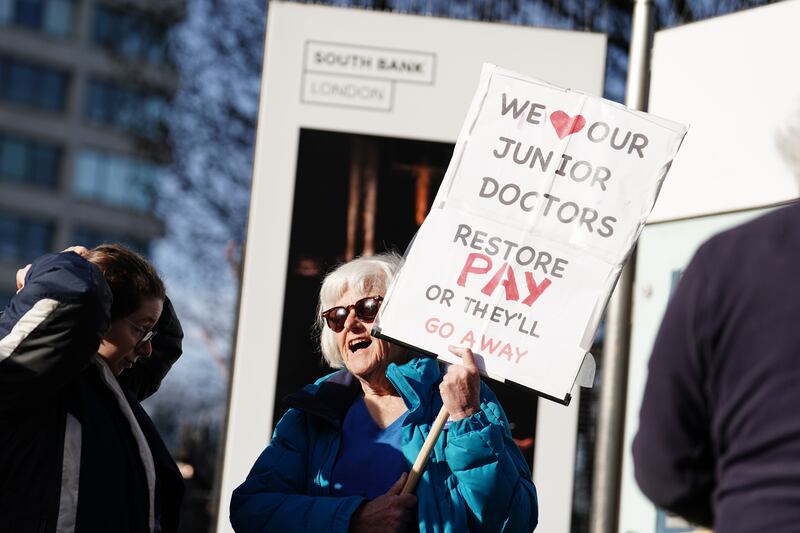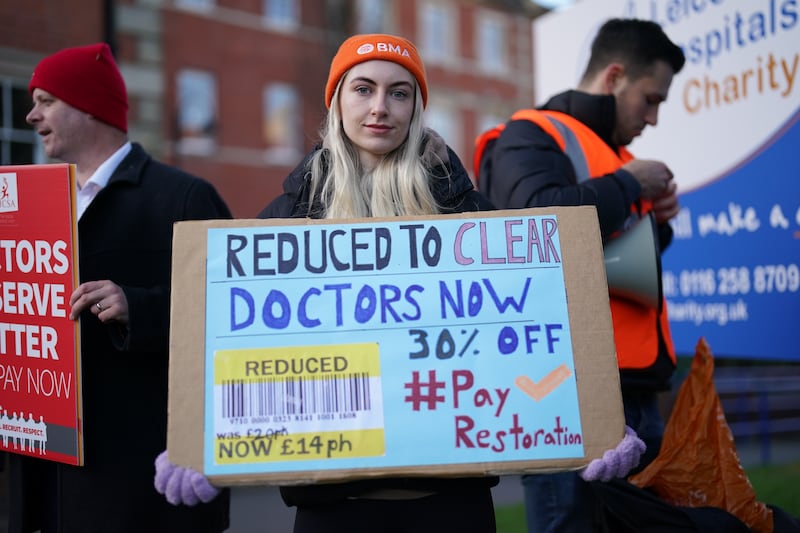A four-day strike of junior doctors from Tuesday will have “catastrophic” consequences on health care, a leader of the UK’s National Health Service has said.
Matthew Taylor, chief executive of the NHS Confederation, said there was “no question” this walkout would be more disruptive than the 72-hour strike last month, which led to 175,000 medical appointments being cancelled.
He said he expects up to double the number of appointments to be rescheduled this time around as doctors walk out at 7am on Tuesday, resuming duties on Saturday morning.
Mr Taylor said “what we’re seeing is a battle of rhetoric rather than talks”, adding that he expected “up to 350,000” appointments to be cancelled.
“These strikes are going to have a catastrophic impact on the capacity of the NHS to recover services,” he added.
Speaking on Tuesday morning at the start of the strike, Sir Stephen Powis, National Medical Director of NHS England, said the action will "undoubetdly" cause significant disruption, which will take "weeks to recover from".
He told Radio 4's Today show: "We have made great progress in reducing waiting times over the last year.
"We hit our target of reducing long waiters last summer and we are close to our target that we have for this spring of reducing long waiters to below 18 months. But strike action does have an impact.
"And obviously we feel for patients who are affected. We will reschedule those procedures as quickly as possibly. But this is a significant set of industrial action that is going to cause major disruption."
He added: "We are working very hard to ensure those emergency services are kept safe. That is out priority, but I also have no doubt that cover is very fragile. We are relying on consultants and other staff to cover the work junior doctors usually do.
"Junior doctors are a significant part of our medical workforce, up to 40 to 50 per cent of our staff."
Why are junior doctors going on strike in England?
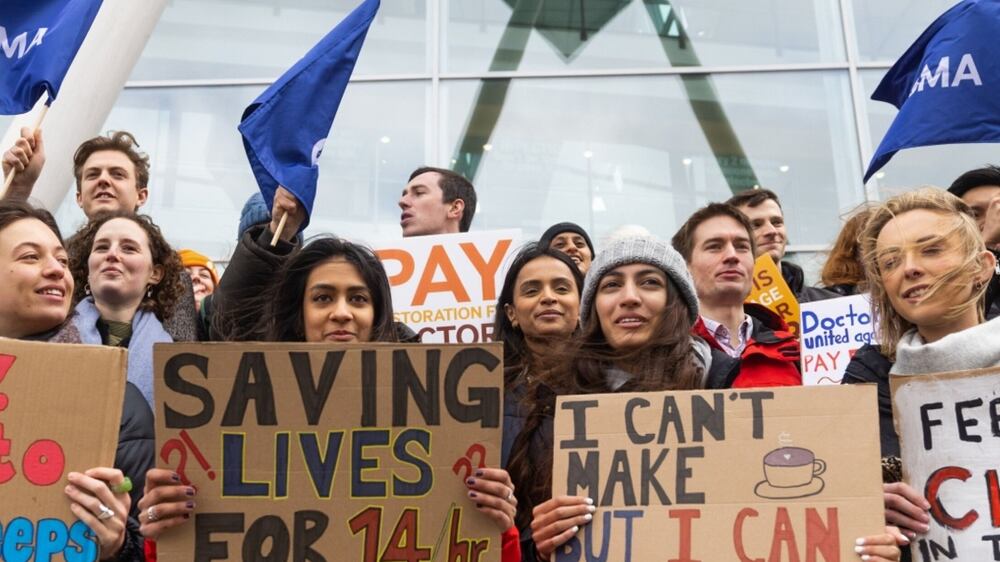
He urged the public to "use services wisely" and only attend A&E in an emergency.
Speaking about prospect of pay talks, Mr Taylor said: “It’s depressing that there seems to be no movement at all from the two sides of this dispute over the last few days.
“We should consider asking the government and the trade unions to call in Acas, the conciliation service, to provide some basis for negotiations because if anything the positions seem to have hardened over the last couple of days.”
The strike by junior doctors is the latest to have gripped the NHS in recent months as it tries to recover from Covid-19 backlogs. Nurses, ambulance crews and other health workers have all walked out since last year in disputes over pay and working conditions.
Managers have warned that patient care is “on a knife edge”.
Dr Jennifer Barclay, a surgical doctor in north-west England, said she would be taking part in the strike because she does not feel she is being paid fairly.
While she is operating “my bleep is going off incessantly in the background with more and more patients waiting to be seen as soon as I get out of theatre”, she said.
“There is nothing ‘junior’ about the work I have done as a doctor.
“I’ll be working a busy on-call shift; treating unwell patients, assessing new patients, consenting and preparing patients for surgery and answering never ending bleeps, when we have to run to theatre.
“I haven’t had time to eat or nip to the loo and I know I’ll be in theatre for around an hour.”
Dr Barclay said she wanted a system in which doctors were well rested and not overworked.
“I don’t want them to be burnt out, worried about paying the bills or up to £100,000 ($123,650) of debt or thinking about alternative careers while making life and death decisions,” she said.
The intensity of the pressure she is under as a junior doctor in the NHS has prompted her father, an electrician, to suggest she should quit and follow in his footsteps, she said.
As part of a campaign to support doctors, the BMA has highlighted how much they are paid for taking out a patient’s appendix.
Three doctors — with one, seven and 10 years’ experience — would make £14.09, £24.46 and £28, respectively, by performing the potentially life-saving procedure, the trade union for doctors said in a press release.
Dr Robert Laurenson and Dr Vivek Trivedi, BMA junior doctors committee co-chairmen, said it was “appalling” that Prime Minister Rishi Sunak’s government “feels that paying three junior doctors as little as £66.55 between them for work of this value, is justified”.
“This is highly skilled work, requiring years of study and intensive training in a high-pressure environment where the job can be a matter of life and death,” they added.
Health and Social Care Secretary Steve Barclay expressed dismay over the planned action after the breakdown in talks with representatives of junior doctors.
“It is extremely disappointing the BMA has called strike action for four consecutive days,” he said. “Not only will the walkouts risk patient safety but they have also been timed to maximise disruption after the Easter break.”
He said the BMA’s proposal of a 35 per cent pay rise was “unreasonable” and “would result in some junior doctors receiving a pay rise of over £20,000”.
Mr Barclay said if the union was willing to “move significantly from this position and cancel strikes”, he would be happy to resume negotiations.
